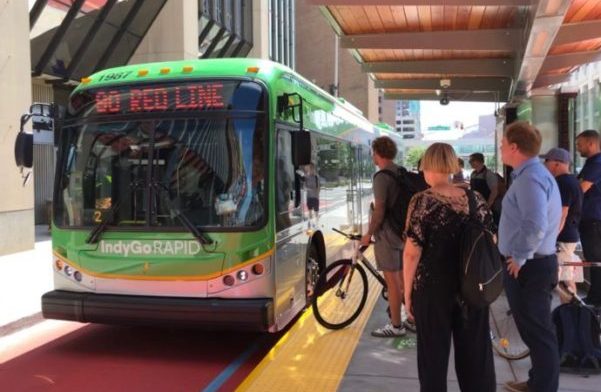The 2021 General Assembly
From our 2021 Bill Watch Page:
HEC presented our legislative priorities for the 2021 Indiana General Assembly in this in-depth interview with Indiana Public Media. We described our overall agenda and calls to action at Greening the Statehouse. Our top priorities in the 2021 Indiana General Assembly are very much focused on helping Hoosiers through the pandemic and helping Indiana’s economy revive through jobs in the sustainable economy, as we summarize in this interview with Fox-59 News. The 2021 session began on January 4, 2021 and concluded on April 22, 2021. We spotlight our specific legislative priorities below; these are categorized by our three main organizational aims (i.e., water and wilderness protection; environmental health & justice; sustainable economy).
I.) Read our recap of the 2021 Legislative Session
For all of the challenges of this session (and there were many), HEC and our allies did secure victories for environmental health, endangered open spaces, mass transit, and pollinator-friendly solar. Our 2021 legislative report (from April 24, 2021) lays out both our victories and the headwinds that we faced; for more detail, please see below.
On April 29, 2021, the Governor very unfortunately signed the anti-wetlands bill, SEA 389, and the anti-climate bill, HEA 1191, into law. We are very, very grateful for all of your calls and emails. Please see more detailed updates below.
II.) Get in touch with your lawmaker, post-legislative session: Thank them and/or hold them accountable
Please be sure to follow us on Facebook and Twitter for real-time updates. We greatly encourage you to email (or schedule a Zoom meeting) with your state representative and state senator and let them know how you felt about how they voted — what you appreciated, what you were disappointed with, and what you would like to see them prioritize in the future. Build a meaningful relationship with them. Check out our new webpage where we highlight Indiana lawmakers who lead on the environment & sustainability (including those who sponsored pro-rooftop solar bills) as well as those who were notably anti-environmental (including the co-sponsors of the anti-local climate bill HEA 1191). This resource also includes voting records for legislation that were key HEC priorities in the 2021 legislative session (i.e., HEA 1191, SEA 389, SB 373, and SB 141).
Find Your Voice
HEC Advocacy Guide
HEC helps Hoosiers become successful advocates for environmental legislation in Indiana. Download the HEC Advocacy Guide
Take Action
You can get involved in the legislative process by:
- Contacting your representative and senator on bills of concern and in support of strong environmental programs;
- Attending “meet your legislator” events or setting up a meeting in the district;
- Hosting a Greening Your Community House Party;
- Attending an Environmental Advocate training; and,
- Writing a letter to the editor for your local paper.
Read on for more tips on effective advocacy.
DO Go Local
Effectiveness is based on geography— legislators are most responsive to their own constituents, and want to hear your opinions as a constituent. Maintain contact with your legislators throughout the year. Best of all, meet with your legislators when they’re at home in their district. Nothing is more effective than an in-person meeting. Invite them for coffee, or for a hike in a local park or natural area. You can also find them at many community events. Don’t be intimidated – legislators are community members with daily lives not unlike yours.
Stay in touch during the legislative session. Attend “meet your legislator” events such as “Third House” meetings hosted by your Chamber of Commerce or League of Women Voters that occur in the districts during session. This is an opportunity to ask questions, encourage support or opposition for particular bills, and hear legislators’ views in a forum where citizens, other community leaders and news reporters are present and will hear your point of view and legislators’ responses.
DO Your Homework
Read the bill and related information, including policy briefs and talking points prepared by HEC.
Seek to understand your legislators and the community interests that may influence them; for example, businesses, local government officials, or civic groups. Don’t assume that a legislator supports or opposes your views based on political labels or party affiliation. In many instances, local politics and the preferences of constituents trump other considerations. Don’t feel like you have to be an expert, but make sure you can support your position. Personal experiences are the best way to express your views to your legislators; additional facts and statistics – the more locally relevant, the better – can also support your position, but the more personal the contact, the more effective you will be. Follow your legislator on Facebook and Twitter to learn about upcoming events they are attending, as well as to gain insights into their views and beliefs.
DO Write Letters and Follow Up
Letters are a very effective tool! Organize letter – writing parties with your friends and neighbors—sending letters to legislators and newspaper editors. Check out our sample letters on-line, all that you need to do is fill in the blanks!
Follow the process carefully, and let HEC know what you learn from your legislators. The more we know about legislators’ concerns and questions, the more effectively we can represent your viewpoints at the Statehouse. Also, stay in touch with your legislators to build a long-term relationship!
DON’T…
Critique: try to avoid partisan debate. Discuss your issue based on the merits of policy.
Go off topic: limit your advocacy to a single issue, discussing unrelated issues will not help to strengthen the support of your issue.
Forget to follow up: stay informed on your issue and track how your legislator responds.











